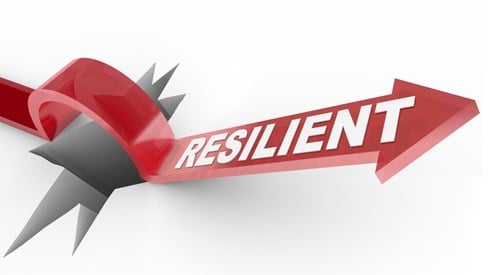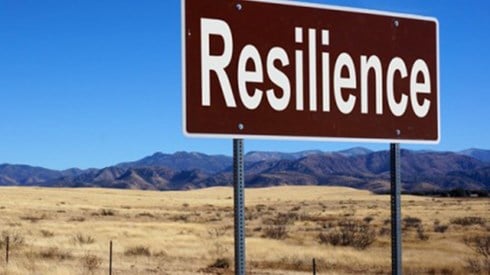COVID-19 Pandemic Continues To Underscore the Need To Build Resilience

August 02, 2021

As businesses and economies continue to recover from the impact of the COVID-19 pandemic, the experience has underscored the importance of risk readiness and risk resilience.
A recent Aon report notes that in 2019 the company's research found an overall decline in risk readiness. And, while companies' top risk concerns included economic slowdown, business interruption, changing market forces, and failure to innovate, pandemics or health crises ranked at the bottom of the list.
What the pandemic experience showed, according to Aon's Reprioritizing Risk and Resilience for a Post-COVID-19 Future report, was the possibility of risks like a changing regulatory environment, geopolitical forces, cyber attacks, and large-scale disruptions all converging simultaneously.
The Aon report draws from data the broker collected in a global survey examining organizations' responses to the pandemic and the ways it's shaping their future.
The survey found that 82 percent of respondents did not consider a pandemic or other major health crisis a top-10 risk before the pandemic and that organizations' enterprise risk management (ERM) strategies failed to identify the threat of the pandemic.
When the pandemic struck, those organizations' risk infrastructures were challenged trying to cope, according to Aon.
"Going forward, risk and business leaders must reprioritize risk—broadening their perspective and evaluating major shocks, not just anticipated losses, and elevating risk managers to an enterprise-level strategic role," the Aon report says. "By doing so, they will also be able to redefine resilience. Together, these are the post-COVID-19 imperatives required to reshape businesses into a more future-ready posture."
Aon's survey found that post-pandemic, building a resilient workforce is a top priority, with protecting people and assets emerging as a key concern. Many companies are focused on well-being, operational resilience, and the retention of key employees, Aon says. Part of that involves building workforce agility, an effort that will require new talent strategies, according to the report.
The Aon report also emphasizes the need to build more integrated, agile, and enterprise-wide risk programs. The survey found that 88 percent of respondents said their organizations did not make claims on insurance programs or through their captive insurance companies as a result of COVID-19, indicating a view that insurance was not considered a solution to financing the pandemic exposure.
"In the case of the pandemic, government response has been a necessary stopgap for a global event of this size, but the company response reveals a clear need for risk transfer solutions to support corporate mitigation efforts," the Aon report says. "Part of that journey will require companies to rethink access to capital alongside risk."
It's also important that the insurance industry innovates in response to companies' changing needs, increasing volatility, and emerging risks, Aon says.
"Successful solutions for the post-pandemic era will need to be more agile, strategic, targeted, and scalable—but addressing underserved companies, economies, and societies requires a fundamental shift in traditional insurance approaches," the report says.
Aon suggested that while each company will have its own path to building the resilience needed post-pandemic, the initial challenge of fully recovering from the crisis is likely to take time.
The pandemic's multiple surges and the inconsistent pace of vaccine rollouts have made it difficult for many organizations to get beyond the initial response stage, Aon says. The survey found that 20 percent of organizations were still in the initial "react and respond" phase 6 months after COVID-19 was established as a pandemic by the World Health Organization in March 2020.
"More than half of companies report that they expect COVID-19 will continue to impact their business a year from now," the Aon report says.
Companies are considering where they must invest to increase resilience, Aon says, including rethinking supply chains and strengthening workforce agility. Even before the pandemic, geopolitical forces were prompting risk managers to reduce supply chain disruption risks, the report says.
The pandemic experience could help businesses better address supply chain risks emerging from other perils including hurricanes, earthquakes, and cyber attacks, Aon says.
In the area of workforce agility, Aon stresses the importance of the workforce's ability to adapt, communicate, and collaborate at times of crisis as an element of a successful ERM strategy. "Companies must invest in the right tools and processes to support that level of agility," Aon says.
The report notes the importance of technology and communications infrastructures and tools to building and maintaining an agile workforce.
"By building workforce resilience through strategic and targeted talent approaches and investments, companies will better position themselves to react and respond to risk effectively, mitigating disruption, and maintaining productivity in the face of change," Aon says.
As they look to build resilience to future crises, organizations also need to rethink their access to capital, Aon says, including seeking insurance industry solutions to help manage their total cost of risk and considering alternative risk financing structures such as captive insurance to address emerging risks.
Others have cited the impact of the COVID-19 pandemic on organizations' consideration of risk and resilience. In a webinar presented earlier this year by the Federation of European Risk Management Associations (FERMA) titled "Global Risks and Resilience," Typhaine Beauperin, the organization's CEO, noted the connection and that FERMA made "From Risk to Resilience" its theme for 2021.
"The pandemic has changed the way we think about risk because we've all had the opportunity to learn first-hand that these low-frequency, high-severity events do happen, and their impact can be quite sudden and quite serious," said one of the webinar's participants, Carolina Klint, managing director and risk management leader of Continental Europe at Marsh.
The crisis has also provided greater understanding about the interconnectedness of risks, Ms. Klint said.
The relative predictability of the business environment in recent decades might have allowed businesses to pursue efficiency at the expense of resilience, Ms. Klint said. Now, with the experience of the pandemic, many organizations are willing to invest in resilience. "2020 has left us with a new appreciation of risk and resilience," she said.
Another panelist in the FERMA webinar, Eugenie Molyneux, chief risk officer of Commercial Insurance at Zurich, suggested that the insurance industry is working to help businesses increase their resilience.
"The insurance industry absolutely sees the need to help its customers be more resilient," she said. "The more resilient the customers are, the better risk they are, from our perspective, and therefore the more likely they are to get the coverage they want."
August 02, 2021




